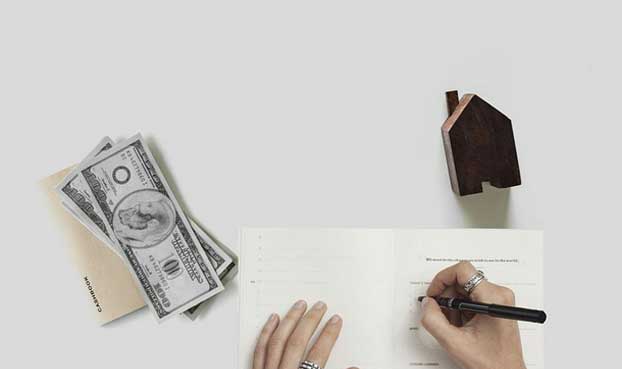 Tax season is often the worst time of the year for many landlords because they’re either unprepared or need help understanding the process. To save themselves the trouble, many rental owners outsource such tasks to legal services, who can help them do it better. Still, even if you plan on contracting a tax lawyer, you should know what goes into it.
Tax season is often the worst time of the year for many landlords because they’re either unprepared or need help understanding the process. To save themselves the trouble, many rental owners outsource such tasks to legal services, who can help them do it better. Still, even if you plan on contracting a tax lawyer, you should know what goes into it.
Are you a newbie trying to prepare your rental taxes for the first time? Would you like insight into the proper tax preparation checklist for rental property owners? We’ve got you covered in this article. So stick around as we explore how your checklist should look, the importance of documentation, and how to maximize your refunds.
Tax Preparation Checklist for Rental Property Owners
Familiarize Yourself with Tax Laws
Before filing your taxes, financial advisers highly recommend that landlords get familiar with tax laws. Knowing the rules of what you have to report and what you can legally deduct before heading in can be a lifesaver. It’s also a good idea to niche down on your rental type. For example, a vacation rental that doubles as a second residence for you can’t be taxed like a property with tenants every day of the year.
Fill in the Right Information
The one thing every tax preparation checklist should always be filling in the correct information. If you own multiple properties, you can enter them as a group, but you’ll need to outline the income and expenses for each rental specifically. Experts recommend keeping separate files for different properties to avoid lumping them together. Although, if you own a single rental, you can go ahead by inputting your name, address, and other investment details.
Track Your Expenses

After filling in the right information, like the address and income of your rental property, the next step is usually including your expenses. This section gives most landlords a headache as they start thinking back to every penny spent on maintaining their property. However, if you already have records from previous months, you can quickly fill out this part. Thus, if you haven’t started noting your rental bills, you should do so now.
Keep the Right Documents
It’s not enough to keep records of your expenses; you also need proof. If something doesn’t check out, the IRS will have questions for you. Besides being able to prove that your report is correct, it also gives you evidence to file a tax reclaim. Receipts, invoices, and credit card statements are excellent examples of thorough record-keeping. Bay Property Management Group Philadelphia can assist in keeping track of your finances if you need help.
File Your Taxes on Time
Another excellent tip for tax preparation is to file on time. Too many landlords make the mistake of waiting for the deadline and then have to rush at the last minute. Instead of risking doing a poor job, set a date weeks ahead of your due date and stick to it. The extra time allows you to do more research, track expenses, and make the proper deductions.
3 Tips to Maximize Your Refund
Calculate Depreciation Costs
Depreciation costs are one of the biggest missed opportunities for landlords looking to reclaim a refund. However, investors that capitalize on this annual accumulation can claim as much as $10,000 if done correctly.
Deduct Additional Charges
Many landlords know they can deduct expenses like maintenance, repairs, bills, and wages. But there are also additional charges that investors can claim, such as gas, employee gifts, HOA fees, and insurance. Taking on these additional charges can help you trim your taxable income significantly.
Amend Existing Returns
Did you know that you can still amend your previous tax returns? As a result, you don’t have to lose out on money you could’ve saved if you were more tax conscious in the past. If you still have relevant documents, file an amended tax return with the IRS within three years of initial filing, and you can claim a refund where due.
Importance of Documented Receipts for Deductions
It Makes it Easier to Reclaim Tax Refunds
One of the biggest pros of collecting receipts is that reclaiming tax refunds is easier. If you want to file an amended tax return, you’ll need proof, such as receipts or credit card statements, to validate your claim. In addition, documents with precise dates and information make it easier for the IRS to approve your request.
It Makes Your Business More Transparent
As a responsible property owner, you should strive to make your business as transparent as possible. While that doesn’t mean you have to post all the details online, accurate record-keeping shows people you have nothing to hide and are not a risk for tax evasion. In addition, auditors from the IRS appreciate landlords that keep necessary documents as it makes their job more manageable and allows your business to run smoothly without excessive scrutiny.
It Helps Track the Progress of Your Business
Another benefit of keeping receipts is that it helps you track the progress of your business. For example, if you swapped your standard toilets for low-flow versions over the last year, a drop in your water bill would indicate that your upgrade was effective. Using that logic, an increase in your rental income or a dip in your vacancy rate could also mean that your advertising costs or recent renovation paid off.
Conclusion
Tax season doesn’t have to be a terrifying time. The process should be seamless if you follow this detailed tax preparation checklist for rental property owners. Tracking your expenses judiciously and familiarizing yourself with tax laws can make filing much less tedious. Also, remember to keep the proper documents to make it easier to reclaim your tax refund and track your business’ progress.
You can hire a professional property manager if you need a hand with tracking expenses and filing taxes more efficiently. These experts can also help you with landlord duties like maintaining your property, responding to tenant needs, and collecting rent.






